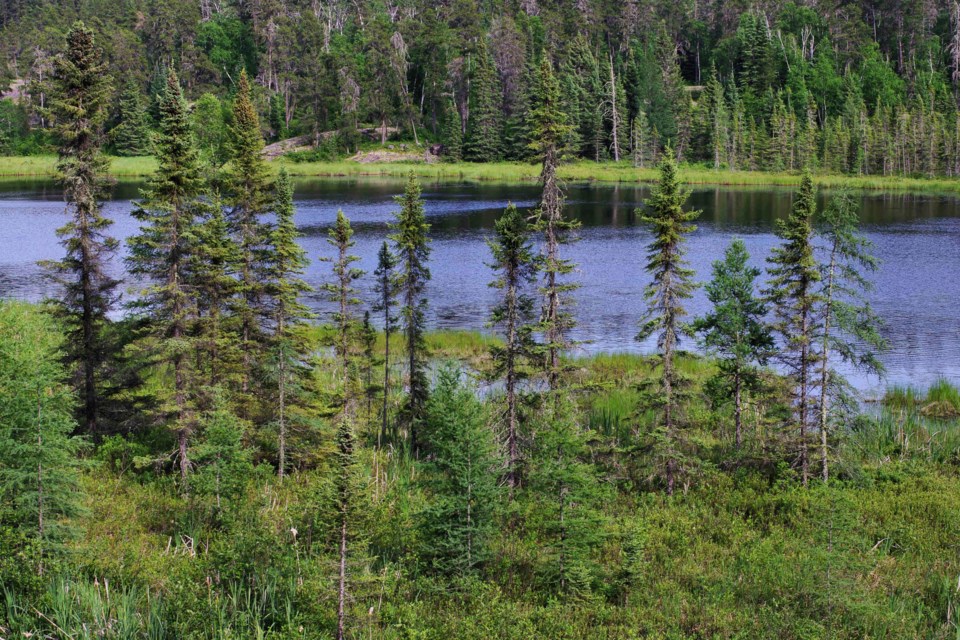TORONTO — A longstanding northern Ontario environmental group is among the chorus of opponents to the Ford government’s controversial Bill 5.
Northwatch, which has been around since 1988 and is based in Northeastern Ontario, has made submissions to the province’s Standing Committee on the Interior, which is currently reviewing Bill 5, the Protect Ontario by Unleashing our Economy Act.
“The core issue with Bill 5 is that it is about deregulation and the dismantling of government,” Northwatch project coordinator Brennain Lloyd told Newswatch. “We watch with real concern at what we see happening in the United States.”
“Bill 5 brings that to Ontario.”
The Ford government has touted Bill 5 as a way to streamline unnecessarily convoluted processes to greenlight resource extraction projects, like opening up new mines, which they say would better position Ontario to protect itself against the ongoing tariff and trade war with the United States. Environmental proponents, like Northwatch, and numerous Indigenous organizations and governments, have been very vocal about the damage they say it would do to rules around consulting with, and getting consent of, First Nations and to regulations designed to protect the environment.
“What it does, it removes the rules, the regulations, the laws that protect the lands, the people, the water of Ontario,” Lloyd said.
In a letter to Premier Doug Ford, Energy and Mines Minister Stephen Lecce and the rest of the legislature, Northwatch called Bill 5 “a grab bag of deregulation and rollbacks of environmental and other protections,” and that it will have “far-reaching environmental and social impacts.”
Lloyd said that can be done through the government designating “special economic zones” which would effectively make those areas immune to standing laws.
“They can override a municipality if a municipality has zoned a riparian area — an area along a creek or a lake — to protect it, they can override that and make it available … for development,” she said.
“Similarly, in an industrial area, they can override, not just the consultation process for … what are currently requirements for provincial approvals, but they can override the need for the approvals.”
The duty to consult Indigenous communities and the general public would be abandoned in these cases, she said.
In May, when responding to reporters’ questions about Bill 5 when announcing over $3 billion to encourage First Nations participation and ownership in resource projects, Mines Minister Stephen Lecce said the plan will “streamline approvals” while “fully respecting the duty to consult.”
Lloyd said her group also takes issue with the speed at which the bill’s passage through the house is proceeding. She said there were only a couple days for hearings in southern Ontario with no northern environmental organizations or public interest groups permitted to speak.
Northwatch has submitted its analysis to the legislative standing committee reviewing the bill.
“Two days for a bill of this magnitude is just unacceptable,” Lloyd said, also charging that the government is limiting debate and discussion on the bill in the legislature itself, and the opportunity for MPPs to make amendments.
“All of those are signs of a government that knows it's doing the wrong thing.”
As for the continued opposition to the bill, Lloyd said she’s encouraged by what she’s seeing.
“I think that we owe a lot to the First Nation leadership on this,” she said. “They've done an excellent job in analysis of the bill and sharing that analysis, and I think that the public recognizes a disaster in the making.”
“And this is a disaster in the making.”
Lloyd added that there are reasons for robust laws designed to protect the environment, citing decades of largely unregulated industrial dumping, primarily in the 20th century.
“We have spent decades cleaning up from those years, we don't want to go back there,” she said.
“The public knows that, and they know that Bill 5 will bring on a massive sweep of deregulation, and it throws good government out the window.”
